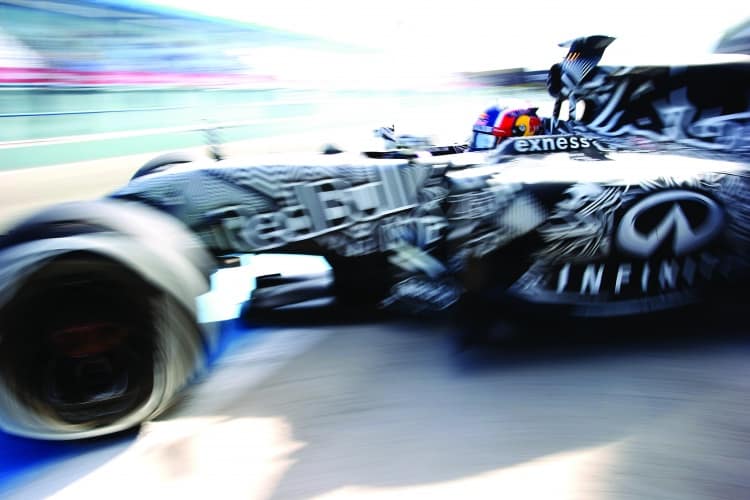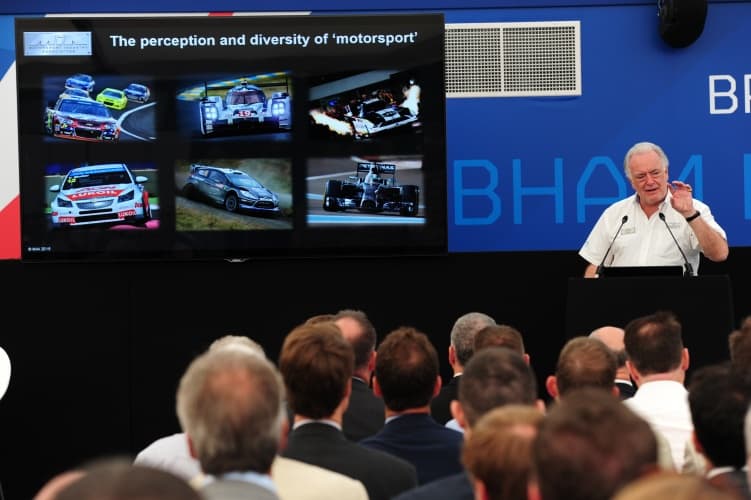As the great and the good descend upon Silverstone this weekend for the British Grand Prix, the plight of the humble motorcar is unlikely to be the hot topic on everyone’s lips. Motorsport – and Formula 1 in particular – generally seems a million miles away from the daily battles of commuters, crawling along the M25 with ne’er a pit crew in sight. But behind the glory of the podium, behind the champagne and the yachts, there is undoubtedly some of the most advanced engineering on the planet taking place.
Although some remain unconvinced that the developments made in Formula 1 have any benefit for the wider automotive industry, the link between race and road is one that the motorsport community is keen to emphasise. This week, leaders from that community were brought together at Silverstone under the flag of UK Trade & Investment (UKTI), to discuss the transferability of technologies between motorsport and the car industry.

Alongside speakers from Williams Advanced Manufacturing, Formula E and RaceLogic, Hugh Dickerson - Google’s senior head of automotive - delivered one of the keynote addresses. His presence pointed to a wider crossover in the automotive world, where companies like Tesla, Bosch and Google are making some of the biggest leaps forward, rather than traditional car manufacturers. The blasphemous notion of autonomous technology appearing in motorsport - for pit lane or safety car use – was even mentioned.
According to Chris Aylett, CEO of the Motorsport Industry Association (MIA), the idea that motorsport is wildly disconnected from the rest of the automotive sector is an out-dated one. He believes engineering innovations in motorsport have a significant impact on wider industry, and shouldn’t be overshadowed by the celebrity and spectacle of race weekends.
“We can’t get away from the fact that we are in a sports entertainment business that has engineering as a critical part of what it does,” he told The Engineer.
“There’s no harm in enjoying engineering. This is a sports entertainment that conveys to millions around the world what fun engineering can be, and there should be more fun in engineering, not less…if it doesn’t entertain the general public, then we don’t get any sponsorship and we don’t get any interest from OEMs or anybody else.”
Aylett believes the expertise developed in the UK through motorsport is vital for the health of engineering in the country. No less than seven of the ten current Formula One constructors have a UK base, and the knowledge and skills that arise from that can’t help but trickle down across automotive and other industry sectors. In particular, Aylett believes the development of prototypes is a core competency developed in top-level motorsport that will have a huge benefit to the UK moving forward.

“By far the most relevant thing that motorsport has found to do, is in this field, that’s based on the fact that we effectively race prototypes,” he said. “And prototype building, for the next decade or two decades, is going to be a real problem for our engineering industry with so much change coming. Not just automotive, but all over the place.”
“So having a capability in the UK to build prototypes – faster than anybody in the world – is an asset to the UK. And that’s what motorsport has got, and it will become very relevant to the other engineering sectors, but in a way that doesn’t necessarily change the entertainment, it just makes the sector stronger.”
Earlier in the day, Aylett had spoken about Technology Readiness Levels (TRLs), the scale used to estimate the maturity of a particular technology. He claimed a key role of motorsport was to develop technology through TRLs 4-7, bridging the gap between academic research and mass production. The wealth created through motorsport, said Aylett, allows for investment in this “valley of death” that would otherwise be severely underfunded.
Some would undoubtedly disagree, believing these claims to be little more than window dressing for a sport that often appears to revel in excess. However, the UK automotive industry is currently in rude health, and the wide base of knowledge garnered through motorsport must at the very least be given some credit for that. Exactly how much is hard to gauge, but if the UK continues to play a leading role in F1 - both on the track and behind the scenes – the effect on engineering must surely be positive.




Project to investigate hybrid approach to titanium manufacturing
What is this a hybrid of? Superplastic forming tends to be performed slowly as otherwise the behaviour is the hot creep that typifies hot...